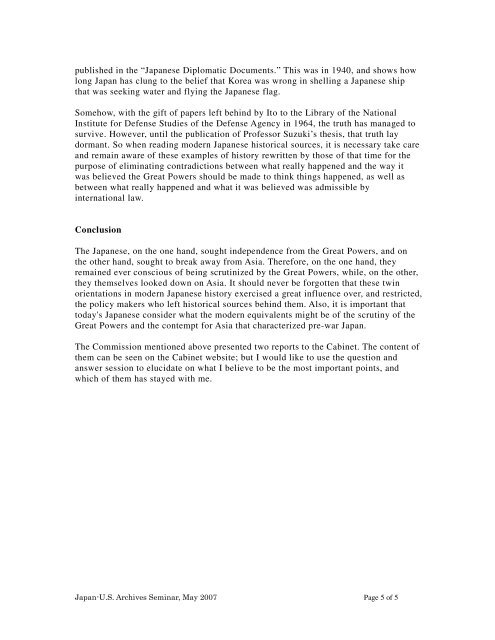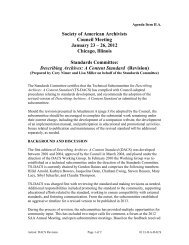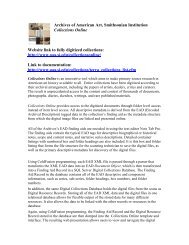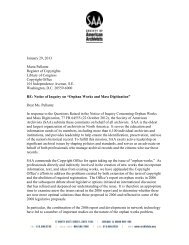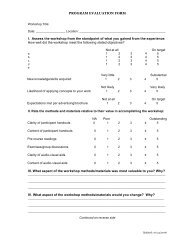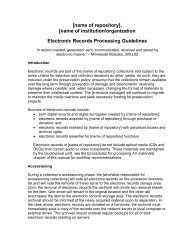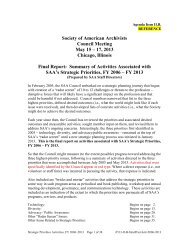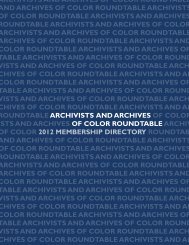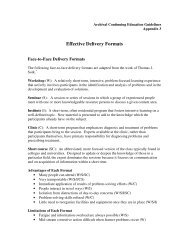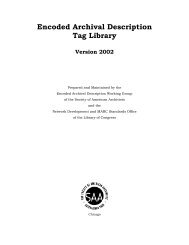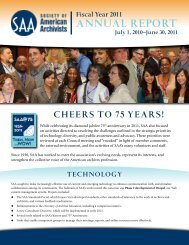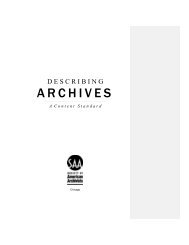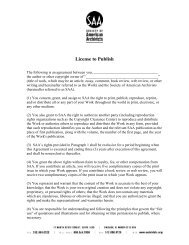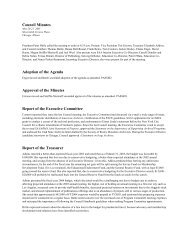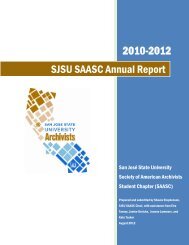The Use and Misuse of History in Modern Japanese History
The Use and Misuse of History in Modern Japanese History
The Use and Misuse of History in Modern Japanese History
Create successful ePaper yourself
Turn your PDF publications into a flip-book with our unique Google optimized e-Paper software.
published <strong>in</strong> the “<strong>Japanese</strong> Diplomatic Documents.” This was <strong>in</strong> 1940, <strong>and</strong> shows how<br />
long Japan has clung to the belief that Korea was wrong <strong>in</strong> shell<strong>in</strong>g a <strong>Japanese</strong> ship<br />
that was seek<strong>in</strong>g water <strong>and</strong> fly<strong>in</strong>g the <strong>Japanese</strong> flag.<br />
Somehow, with the gift <strong>of</strong> papers left beh<strong>in</strong>d by Ito to the Library <strong>of</strong> the National<br />
Institute for Defense Studies <strong>of</strong> the Defense Agency <strong>in</strong> 1964, the truth has managed to<br />
survive. However, until the publication <strong>of</strong> Pr<strong>of</strong>essor Suzuki’s thesis, that truth lay<br />
dormant. So when read<strong>in</strong>g modern <strong>Japanese</strong> historical sources, it is necessary take care<br />
<strong>and</strong> rema<strong>in</strong> aware <strong>of</strong> these examples <strong>of</strong> history rewritten by those <strong>of</strong> that time for the<br />
purpose <strong>of</strong> elim<strong>in</strong>at<strong>in</strong>g contradictions between what really happened <strong>and</strong> the way it<br />
was believed the Great Powers should be made to th<strong>in</strong>k th<strong>in</strong>gs happened, as well as<br />
between what really happened <strong>and</strong> what it was believed was admissible by<br />
<strong>in</strong>ternational law.<br />
Conclusion<br />
<strong>The</strong> <strong>Japanese</strong>, on the one h<strong>and</strong>, sought <strong>in</strong>dependence from the Great Powers, <strong>and</strong> on<br />
the other h<strong>and</strong>, sought to break away from Asia. <strong>The</strong>refore, on the one h<strong>and</strong>, they<br />
rema<strong>in</strong>ed ever conscious <strong>of</strong> be<strong>in</strong>g scrut<strong>in</strong>ized by the Great Powers, while, on the other,<br />
they themselves looked down on Asia. It should never be forgotten that these tw<strong>in</strong><br />
orientations <strong>in</strong> modern <strong>Japanese</strong> history exercised a great <strong>in</strong>fluence over, <strong>and</strong> restricted,<br />
the policy makers who left historical sources beh<strong>in</strong>d them. Also, it is important that<br />
today's <strong>Japanese</strong> consider what the modern equivalents might be <strong>of</strong> the scrut<strong>in</strong>y <strong>of</strong> the<br />
Great Powers <strong>and</strong> the contempt for Asia that characterized pre-war Japan.<br />
<strong>The</strong> Commission mentioned above presented two reports to the Cab<strong>in</strong>et. <strong>The</strong> content <strong>of</strong><br />
them can be seen on the Cab<strong>in</strong>et website; but I would like to use the question <strong>and</strong><br />
answer session to elucidate on what I believe to be the most important po<strong>in</strong>ts, <strong>and</strong><br />
which <strong>of</strong> them has stayed with me.<br />
Japan-U.S. Archives Sem<strong>in</strong>ar, May 2007 Page 5 <strong>of</strong> 5


